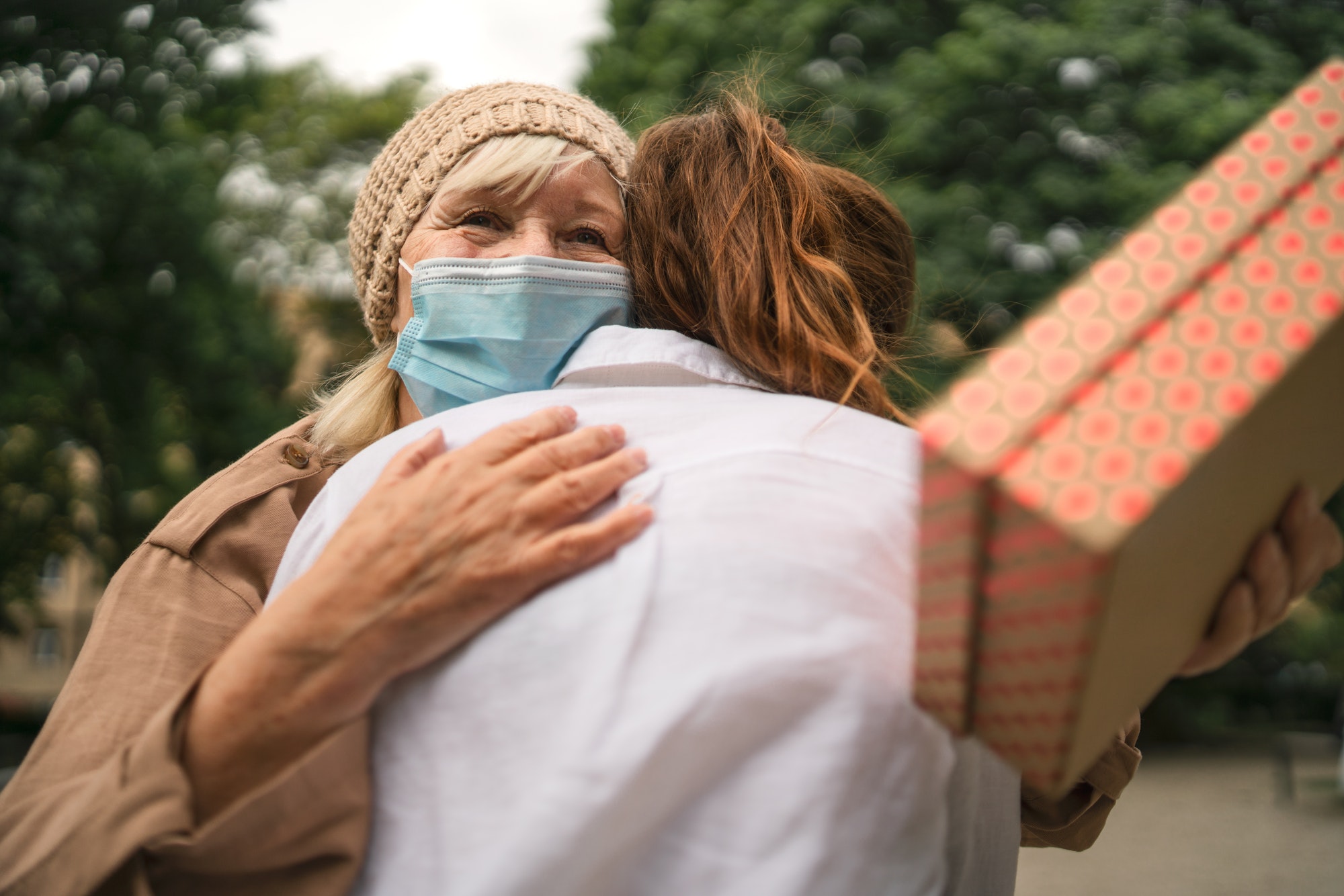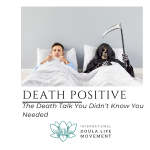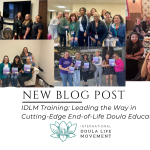Much has been said about what can be learned from the tragedies and triumphs experienced world-wide as COVID-19 ripped through the global community in 2020, but one thing remains clear: we must always be willing and able to adapt to new realities.
Millions of people unexpectedly lost loved ones, businesses – even those that had been established for decades – folded and mandated shut downs left individuals with less frantic, scheduled lives in exchange for a slower pace of life.
These events gave individuals a pause they didn’t know they needed – a pause during which they re-evaluated what is important to them, what they valued and how they spent their time. Whether prompted by shifting economies, the closure of their employer or their new realizations, individuals the world over have been making career changes.
Unfortunately, few high-demand careers can be pursued without upfront training. Often, upfront training for a new career not only carries a large requirement in time spent getting educated but also a hefty price tag for that education as well. Not everyone facing a career change is in possession of both, making career shifts extra stressful.
As a rising number of compassionate professionals have discovered, however, becoming a certified End-Of-Life Doula is easily affordable, the education can be completed on demand wherever you are and the role is a key position in the rapidly growing End-Of-Life Education industry.
What Does An End of Life Doula Do?
End-of-life doulas (EOLD), sometimes called death doulas, are similar to birth doulas in that they are trained to provide non-medical, holistic support for their clients and their families.
While many EOLDs do choose to work with individuals who are actively in the process of dying (alongside the individual’s care team), there are many EOLDs who choose to focus on helping healthy individuals plan for their inevitable death by educating them about and assisting them with completing important documents like advanced directives and living wills, as well as helping them pre-plan their final dispositions and arranging directives on how their advocates can manage their life (things like caring for their children, pets, businesses, paying bills, etc.) in the event that they were unexpectedly in the hospital for a period of time.
No two end-of-life doulas are likely to offer the same services, but in general, EOLDs can be expected to help individuals in the following ways:
- Provide educational information to patients and families about stages of dying
- help in navigating available resources so their clients can make informed choices when facing difficult decisions
- Provide neutral, non-biased emotional support for the dying and their loved ones
- employ hands-on care techniques to keep the dying as comfortable as possible while not interfering with or providing medical support or care
- Offer spiritual support in a manner that aligns with the client – not the doula’s – personal beliefs
- Be a guide in navigating end-of-life planning and paperwork
- Provide grief resources and education
- Maintain a list of referrals to appropriate community organizations and care providers
- Offer neutral, supportive encouragement to clients’ as they get their personal affairs in order – including being an empathetic companion as they make their final amends
- Be available for practical help such as driving to appointments and handling household chores.
5 Reasons to Become An End of Life Doula:
1. The demand for End-of-Life Doulas is about to explode
While an EOLD can work with people of all ages, an older population means more people towards the end of their lives could benefit from the help of a doula.
“Globally, the number of persons aged 80 years or over is projected to increase more than threefold between 2017 and 2050, rising from 137 million to 425 million.”
Report on aging by the United Nations Department of Economic and Social Affairs (New York, 2017)
This dramatic rise in the elder population is going to correlate with a dramatic demand for qualified professionals who can help provide these individuals with quality care. Whether that care happens in their home, in a nursing or retirement community, within the hospital or at a hospice facility, millions of professionals will be needed to help medical staff care for an aging population.
2. Career opportunities for End-of-Life Doulas are abundant
EOLDs find work in communities wherever people are. Individuals, nursing and retirement homes, hospitals and hospice centers all hire end-of-life doulas for on-going work. Additionally, many doctors, funeral homes, grief counselors, financial advisors and some attorneys also refer clients to EOLDs to help them navigate end-of-life preparation.
Many EOLDs start their own businesses and specialize in essential areas or topics that are meaningful to them, such as bereavement, end-of-life paperwork, community education, vigil services, and legacy work. This work can be done anywhere in the world, including over the internet through communications apps such as Zoom and Skype.
For end-of-life doulas who enjoy working in a corporate or team-based environment, there will be no shortage of available positions for them to select from – regardless of what type of setting they are looking to build their career in, whether they prefer to work in the fast-paced halls of a hospital or whether they prefer to get to know individuals better in a nursing home or retirement home setting.
3. End-of-Life Doulas do not require any medical training
End-of-life doulas offer education, emotional support and comfort to those who are either pre-planning their inevitable death or who are actively in the process of dying. Unlike careers in the medical field, end-of-life doulas are not required to have any medical training because they do not offer medical care.
Many nurses looking for a change of pace do become EOLDs and have medical experience which helps them transition into their new career (because they may have an easier time explaining medical terms or procedures to their clients), but EOLDs do not administer medication, take vital signs, or provide medical care or advice.
Rather than replace or compete with medical providers, doulas support other health care providers on their clients’ care teams by filling the education and support gap that organizations like hospice can’t fill due to restrictions on the time they’re allowed to spend with patients and families by insurance and Medicare guidelines.
Anna Adams, founder of the International Doula Life Movement, has a lot to say about the value of having doulas on staff at care facilities after years of providing her services to organizations and families:
“I have seen first-hand that in today’s healthcare environment, many offices or care centers have an increasingly higher ratio of patients to providers than they did even just a decade ago. These providers desperately need doulas who can help alleviate the demands of the attention element to client-care that they simply don’t have the time to provide due to their demanding patient rosters.
Unlike care providers, doulas are allowed and able to spend unlimited amounts of time with patients and their families. So when it comes time to process emotions after difficult news or talk about their concerns or fears, doulas are an essential part of the care team that ensure patients have someone to rely on as an emotional & supportive advocate during a stressful time. The benefit of having an empathic, compassionate companion available to patients and their families to help process difficult, distressing or stressful thoughts and hold vigil at the end of life so no one experiences death alone cannot truly be stated.
For the medical team, having a neutral party that can help navigate flare ups between distraught family members and the care team is critical in maintaining a peaceful environment for the patient.”
4. End-of-Life Doula training is both affordable and convenient at any stage of life
While attaining a college degree can take two to four years and tens of thousands of dollars in tuition, becoming a certified end-of-life doula is remarkably more affordable and achievable in the immediate future.
The International Doula Life Association offers an end-of-life certification program for aspiring EOLDs for less than $600. The program is offered via live, instructor-led classes that take place over a twelve week period for students who prefer to learn via live instruction where they can directly ask questions during the class and via self-paced instruction for individuals who would work through the course material at their own pace – whether they want to dive deep into the program over a few focused days or whether they prefer to take a more leisurely pace through the material.
Regardless of which course format a student selects, their course assignments will be reviewed & graded by a member of the IDLM instructor team and they’ll have access to a member of the IDLM instructor team for one-on-one Q&A sessions and feedback.
The International Doula Life Movement end-of-life certification program covers the following topics:
- Understanding What a Doula Does
- Patients Rights & Code of Ethics
- Stages of End-of-Life Care
- Coping with Grief and Loss: For Doulas
- Voluntary Stopping of Eating & Drinking (VSED)
- Common Diseases
- Infection Control, Transmission, and PPE
- Pediatric Hospice
- How to Communicate with Patients & Families
- TeleDoula Best Practices
- Companion Doula
- Home Wake, Cremations, & Green Options
- Life Planning and Legacy Work
- Advance Directives
- Religions & End-of-Life
- Business Planning & Practitioner Wellness
- NEDA Exam Prep
- Business 101
As of October 2021, all IDLM certification students receive The End of Life Caregiver Bundle written by Barbara Karnes and a pack of The Death Deck as included bonuses for course enrollment.
The Movement, IDLM’s community arm, is included for all IDLM certification program students with enrollment and is a source of community, support and continuing education for doulas throughout the world.
Aspiring doulas can receive an internationally recognized end-of-life doula certification from an instructor with over 20 years of working in the end-of-life and hospice industry in as a little as a few days and for less than the cost of one collegiate course (with payment plans available) putting a career shift into the care industry within reach of anyone interested in embarking on a new career.
5. Assisting individuals approaching the end of their life is deeply rewarding
End-of-life doulas offer non-judgemental support, encourage their clients to make informed choices for their end-of-life care and help them communicate these wishes to their care team. Doulas aim to return death to the sacred transition it is meant to be and can help alleviate any fears of this transition their clients may be experiencing.
When working with a client’s care team and loved ones, empathetic EOLDs can aid in easing the suffering of those experiencing anticipatory and early grief. Clients are encouraged to find the meaning in their lives as well as to say their final goodbyes.
Whether you’re interested in helping healthy individuals plan for the inevitable or whether you’re called to sit with the dying, end-of-life doula work is deeply fulfilling emotionally. Practicing doulas often share that being present for their clients helps remind them of their own values and helps them live their most fulfilling lives.
Are You Ready to Become An End-Of-Life Doula?
If you feel called to be a doula, the chances are great that the career move you’ve considering is going to be a massive positive in your career path. The industry demand is growing, the jobs forecast for EOLDs is overwhelmingly positive and the educational requirements for new doulas are beyond achievable (even if you’re limited in either time, money or both).
Beyond ensuring they’re educated for their new career, Anna Adams says doulas don’t need much more than “a loving heart and the willingness to be an advocate for your clients and their families.” She adds that the best EOLDs are proactive, empathetic and level-headed in times of distress.
If you’re ready to answer the call to become a doula, you can sign up for International Doula Life Movement’s end-of-life doula certification course and start preparation for your new doula career today.
Prospective doulas who are not quite ready to commit to doula certification yet are invited to enroll in IDLM’s free introduction course Discovery: Called to Be A Doula. This self-paced video series covers topics prospective students might be curious about, including industry and career details, a closer look at the International Doula Life Movement (along with information on why we cost so much less than other certification programs) and interviews with IDLM graduates discussing why they felt called to become doulas, why they chose IDLM for their education and what their day-to-day activities as EOLDs look lik






